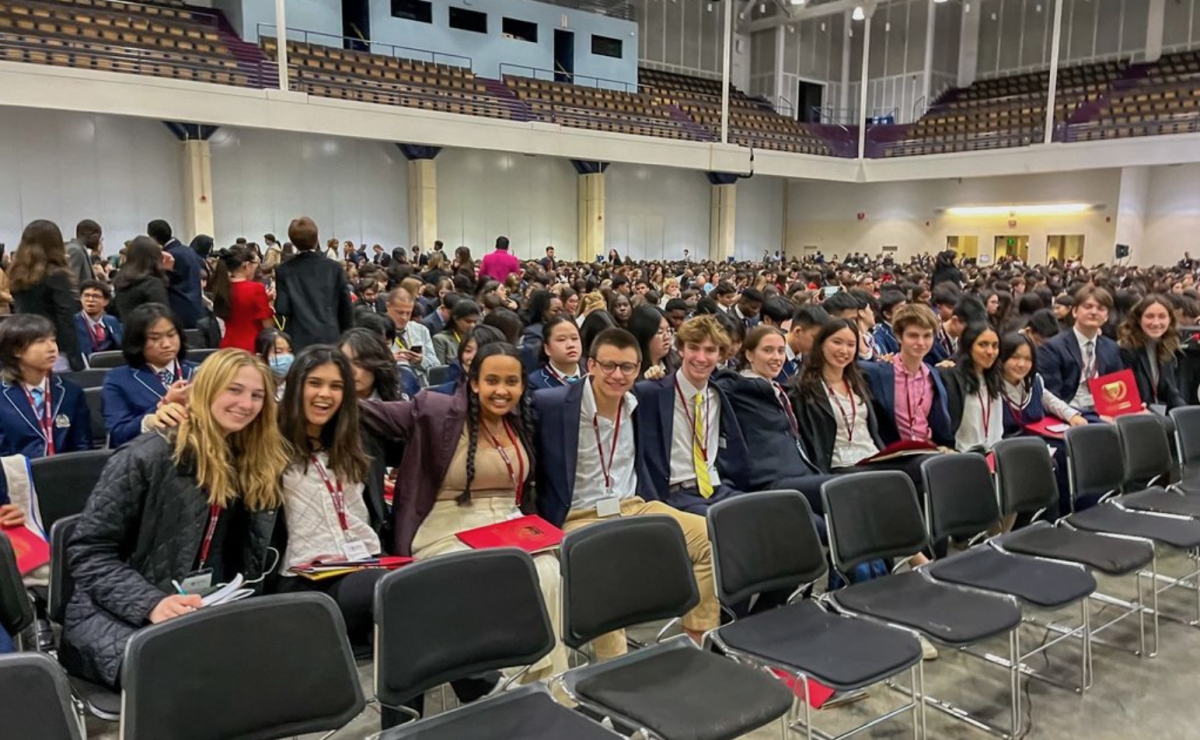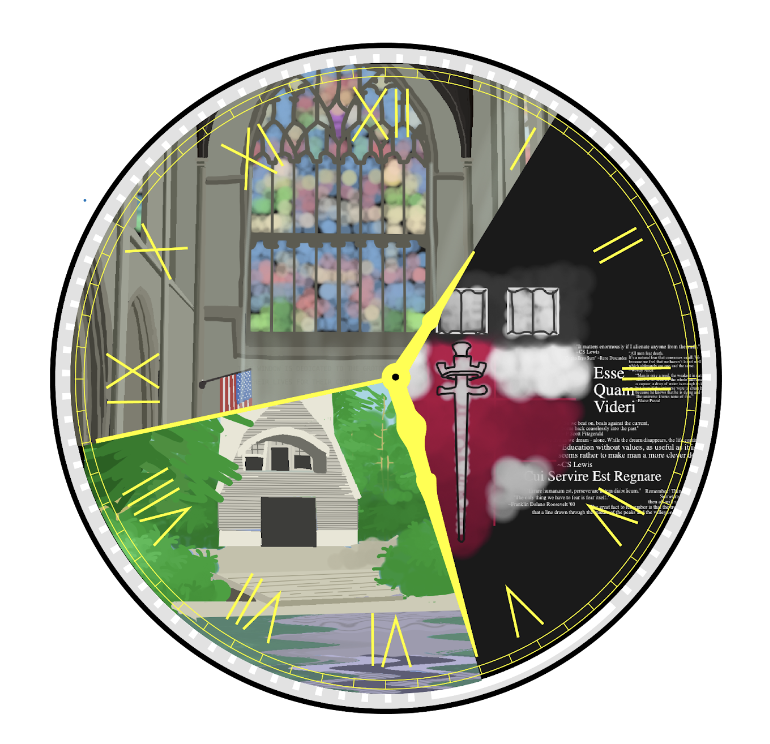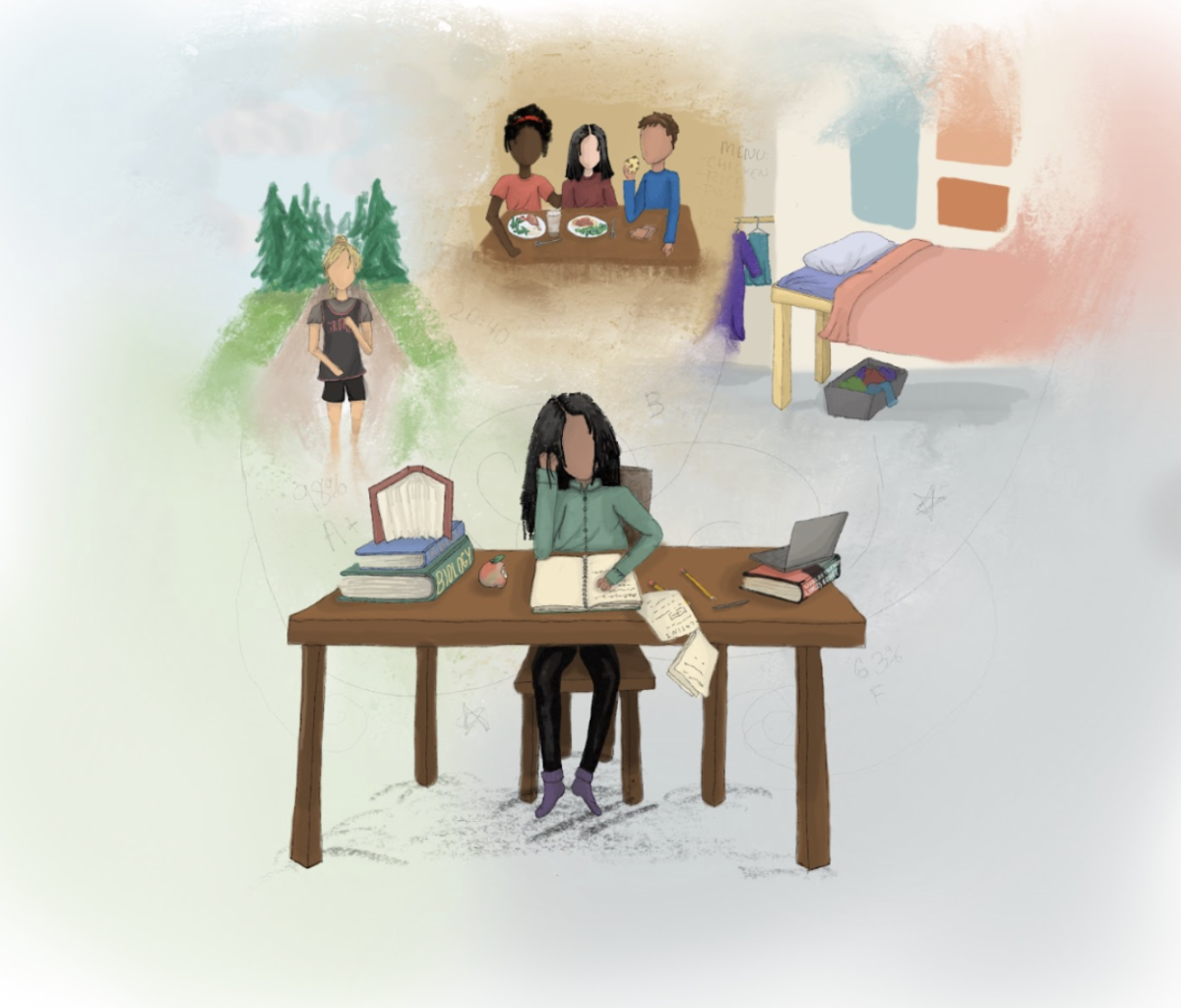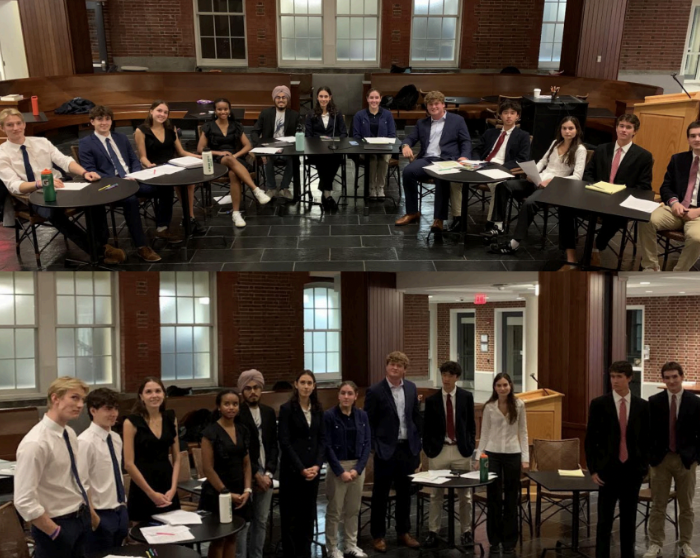Every year, a dozen students in Groton’s Model United Nations (MUN) team attend the Harvard MUN (HMUN) conference, which hosts forty countries and 3,000 delegates. From January 15th to 18th this year, accompanied by history teacher Tommy Lamont, Fifth and Sixth Formers attended both current and historical committees. These committees included the World Conference on Women, the Committee on Immigration, the Security Council, the International Labor Organization, and the Commission on Science and Technology.
Andres Palacios ’24 and Tsion Shamsu ’24 won the Diplomatically Commended award in their committee, the Security Council. “Tsion and I won the award because we were engaged and interested during the conference,” said Andres. “We had a lot of fun, and we didn’t just come to win.”
Andres and Tsion represented Tunisia in the Security Council focusing on the 1979 Soviet-Afghanistan War. They participated in a historical committee, which reenacts the response to an event that has happened in the past. “I enjoyed brainstorming ideas on how the UN could have dealt with the situation in Afghanistan more effectively,” said Andres. “There’s something special about rewinding the clock and revisiting difficult situations.”
Other students attended committees focused on modern dilemmas. Julia Landau ’25 attended the Commission on Science and Technology, which debated the ethical and scientific controversies of in vitro fertilization. Agathe Robert ’24 represented Poland in the International Labor Organization, discussing the “Importance of Gender Equality in the Labor Force.”
“We started off with moderated caucuses, which are formal speeches given by delegates to situate each country’s position on the issue,” said Agathe. “Then we moved on to unmoderated caucuses, where we discussed more openly between countries and wrote resolutions, which was my favorite part of the conference.”
Although the majority of the conference was positive, Ms. Lamont and the students had their fair share of critiques. “It was frustrating that not all of the countries acted as they should have,” said Ms. Lamont. “The expectation is that delegates will mirror their country’s position on various issues, but sometimes students fall out of character in the excitement to make alliances.”
Agathe expressed a similar sentiment: “You never really know who your allies are going to be until you arrive at the conference. I thought I would be able to ally with countries surrounding Poland, but many were not present.”
Even with the flaws in this year’s HMUN conference, students had several important takeaways. Andres explained that he “improved his public speaking skills during the conference” and “made many new friends.” Agathe reflected, “You often hear about the UN as a unique body that is open to every country in the world, but you never know what that truly means until you’re in a room with 100 other delegates representing countries you’ve barely even heard of.”
This year will be Ms. Lamont’s final year facilitating the MUN team and working at Groton after advising the team for over fifteen years. She hopes that one of the new history teachers will fill her shoes next year. To her, it is important that MUN continues in the future since “we live in an interconnected world, and it’s important to understand the possibilities the UN presents.”






